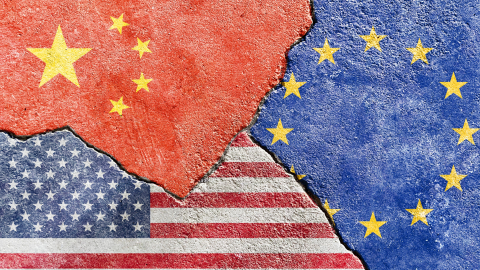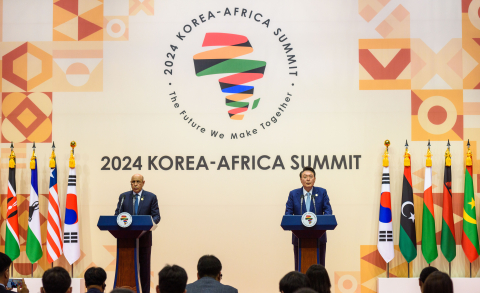3206 publications
Abkhazia and South Ossetia: Collision of Georgian and Russian Interests
This article focuses on the deterioration of relations between Georgia and Russia over the secessionist regions of Abkhazia and South Ossetia. Georgia's separatist conflicts are far more than domestic territorial disputes: they have both regional and international implications, and represent one of the principal obstacles to the development of Georgian-Russian relations. As military skirmishes have threatened to escalate, jeopardizing stability in the volatile Caucasus region, President Mikheil Saakashvili's desire to resolve these protracted conflicts has become symbolic of his vigorous approach to tackling Georgia's more intractable problems.
Dr. Tracey German is a Lecturer in Defense Studies at the Joint Services Command and Staff Colege, King's College, London. Her research focuses on security in the Caucasus region, particulary the Chechen conflict and Georgian-Russian relations, as well as energy issues in former Soviet states.
Russie.Nei.Visions is an electronic collection of policy papers published in French, English and Russian by the Russia/NIS Center, Ifri.
Workshop on EU-Russian Relations
In collaboration with its partners, Ifri is currently supporting a Task Force on the future of EU-Russia relations. The first workshop was held on 2 December 2005 in Paris.
Russia, NATO and the EU: A European Security Triangle or Shades of a New Entente?
The relationships between the EU, NATO and Russia are of great significance for all their actors and for regional security more broadly. The overlapping remit of each is complementary, and provides a potentially beneficial way to address current military and soft security concerns. And indeed good progress has been made —formal relationships have been established and there has been some practical cooperation in a number of areas. This progress is particularly impressive when considered in appropriate historical context— i.e. against the backdrop of East-West confrontation. Few would have foreseen such progress fifteen or even ten years ago. However, there is no 'triangle' —ambiguity and contradiction mar all the relationships, which are dogged by a number of conflicting interests. Moreover, although the top leadership of all three entities profess the desire to enhance the relationships, it is clear that a number of constituencies on all sides do not seek similar developments, for a number of reasons. This has slowed cooperation significantly. EU-NATO cooperation therefore remains problematic, and the West's relations with Russia are by no means past some 'point of no return', to the confrontation of the past half century.
The EU and Russia: the Needed Balance Between Geopolitics and Regionalism
While the EU conceives its neighborhood via regional policies, Russia sees it in terms of geopolitics. A large part of the misunderstanding which prevails on both sides concerning the 'Common Space for External Security' stems from the clash between these different mental maps. By examining the respective and reciprocal implications of these approaches, this paper underlines the need for both parties to become conscious of the conceptual gap between their viewpoints, and to try ultimately reducing it.
Representing Private Interests to Increase Trust in Russia-EU Relations
Increasing the number of actors participating in the daily dialogue between Russia and the EU can not only contribute to solving important issues surrounding these bilateral relations but also, more broadly speaking, to those surrounding the integration process within Europe itself. The inclusion of business representatives and non-profit organizations in this process would make it easier to gage the different social, economic, and political behaviors within 'Old Europe' and overcome the 'democratic deficit' resulting from the absence of citizen participation in the management of Russia-EU relations, and its monopolization by state bureaucracies.
Multiplying Sources as the Best Strategy for EU-Russia Energy Relations
Energy security and gas supply have become issues of central concern for the European Union as reserves in the North Sea are dwindling. Russia is offering to replace the North Sea supplies in the future, but the EU should be aware that Moscow will not be able to fully meet Europe's demand in the future. Russia will remain a significant supplier, but the EU needs to look for other possible sources of gas supply in Northern Africa, in the Caspian Sea region, in the Barents Sea, and in the Persian Gulf. Diversification is the best strategy for enhancing European energy security.










